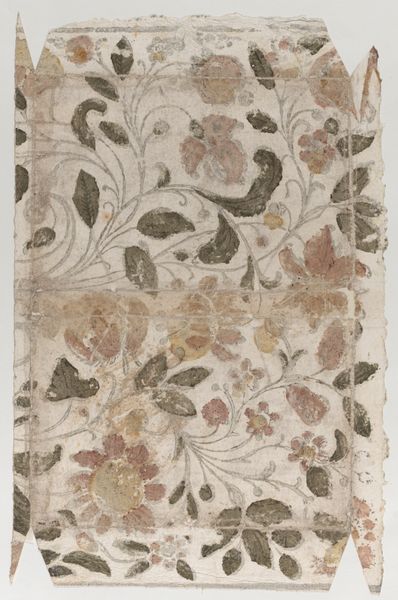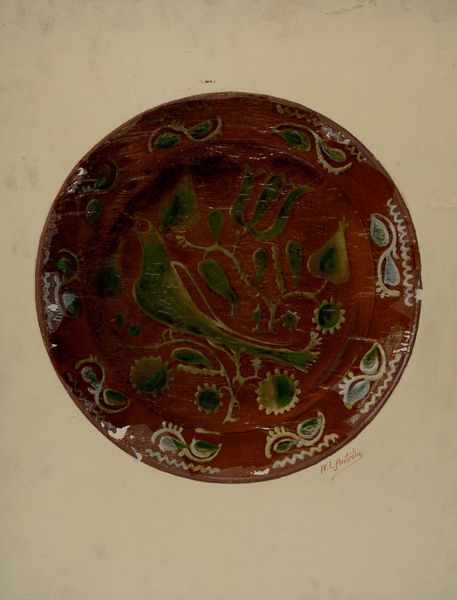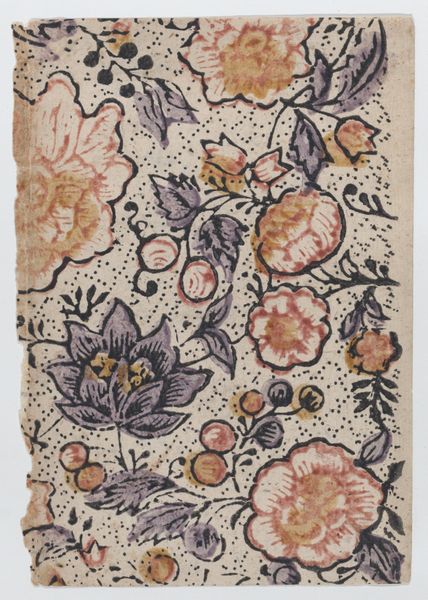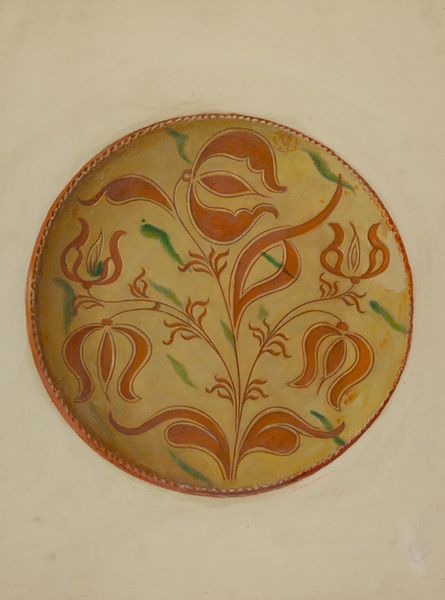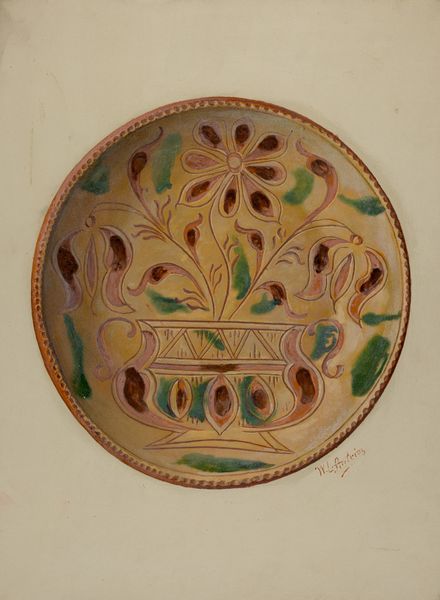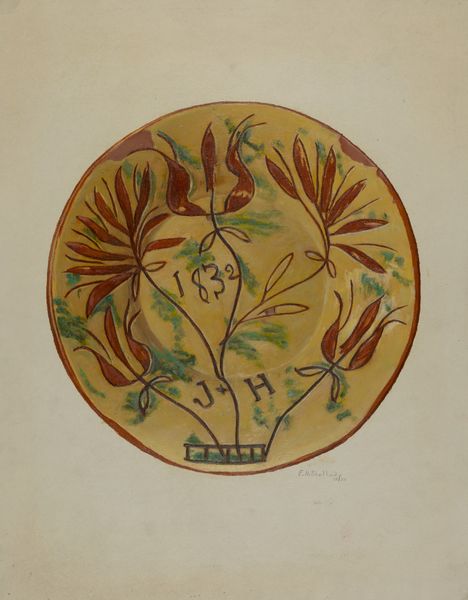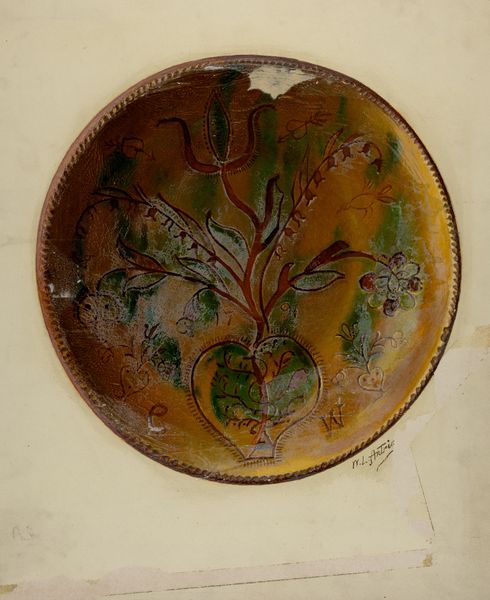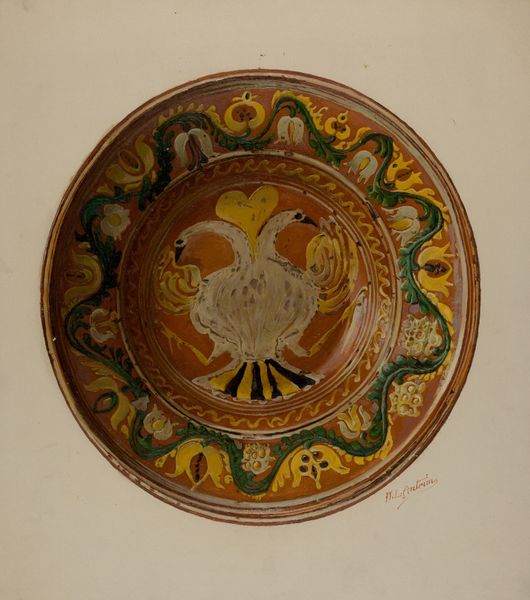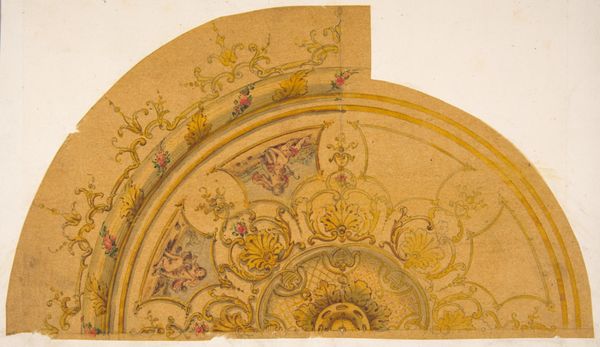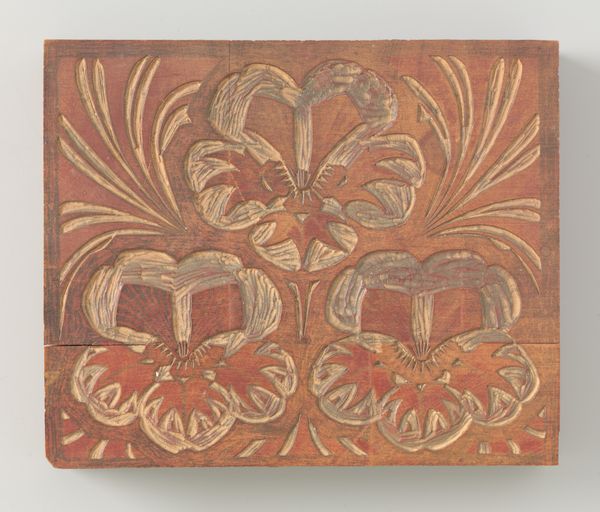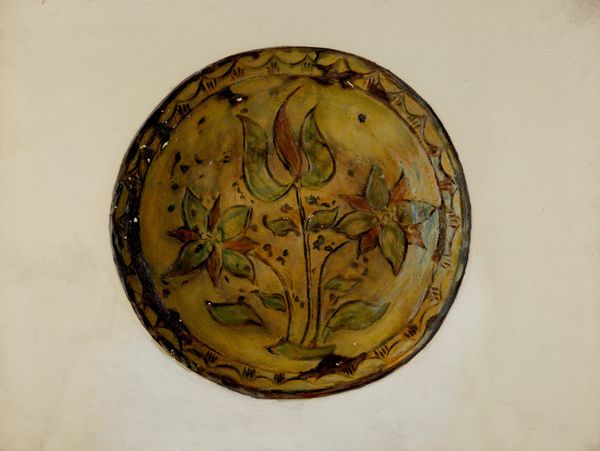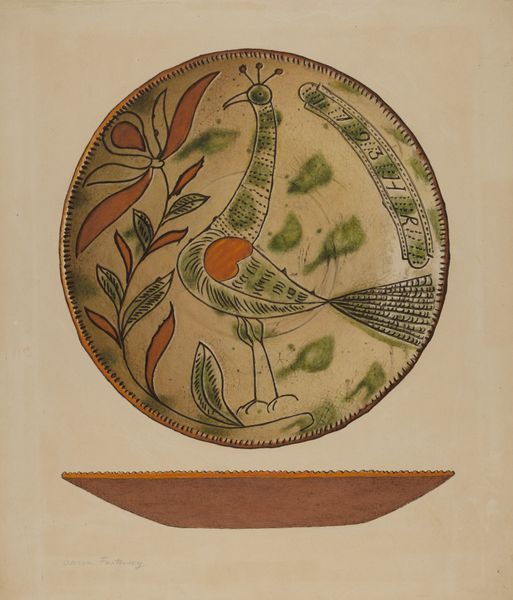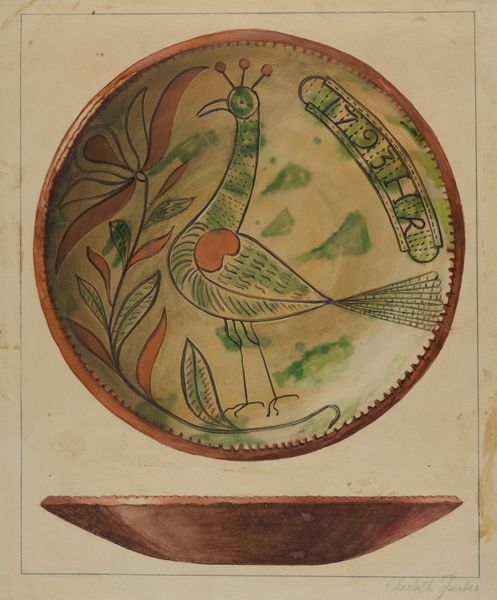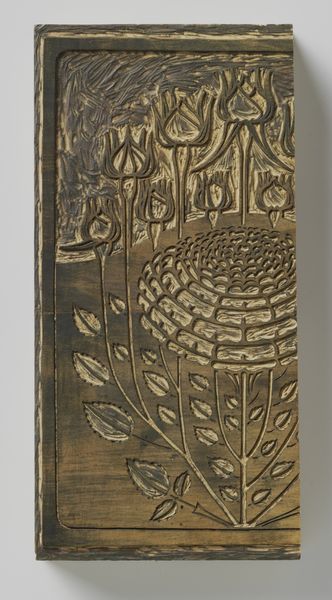
tempera, ceramic, sculpture
#
tempera
#
pattern
#
ceramic
#
11_renaissance
#
sculpture
#
decorative-art
Dimensions: 17 1/4 × 12 3/4 in. (43.8 × 32.4 cm)
Copyright: Public Domain
Masséot Abaquesne created this panel of tiles in France sometime between 1538 and 1557. It's a stunning example of the intersection between art and social history. Looking at the tile, we see vibrant floral motifs and a bold diagonal band, a clear visual code that speaks to the artistic conventions of the time. The piece invites us to consider the cultural context in which it was made. France during this period was experiencing a complex interplay of religious, political, and economic forces. Was this tile intended for a grand aristocratic residence or a religious institution? To truly understand this tile, historians turn to archival research and comparative analysis. By examining similar works, understanding the patronage system, and studying the social history of 16th-century France, we can interpret its meaning. Art is never created in a vacuum; it's a product of its time, reflecting the social and institutional contexts that shape its production and reception.
Comments
No comments
Be the first to comment and join the conversation on the ultimate creative platform.
